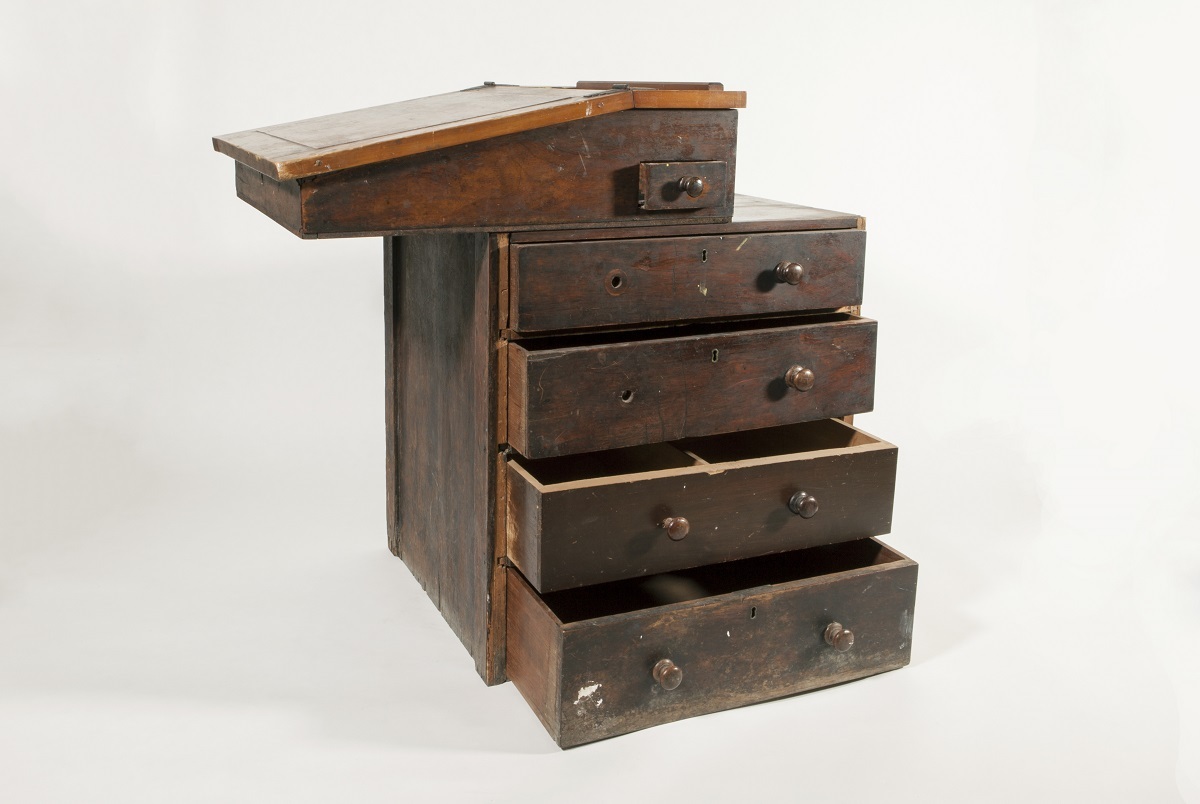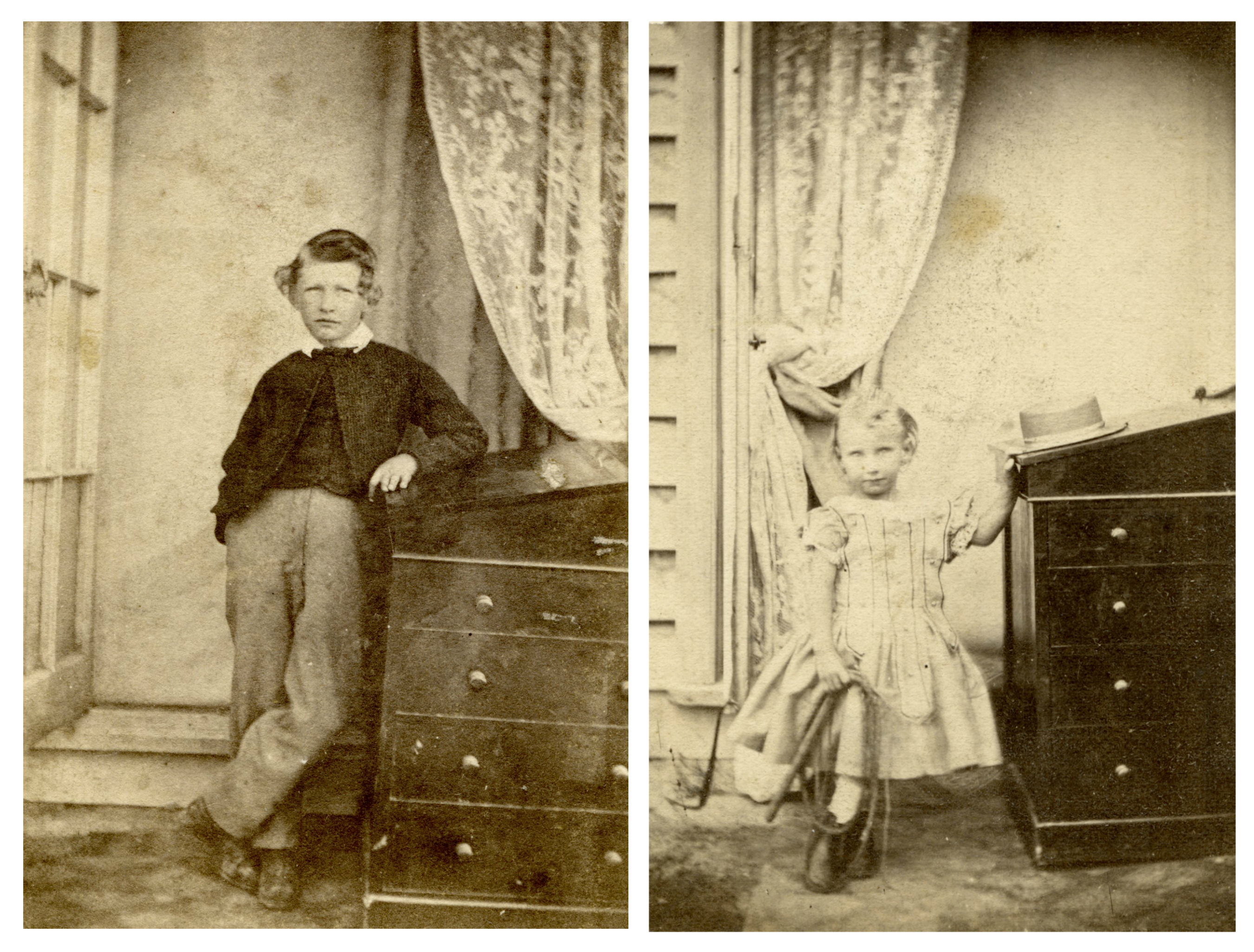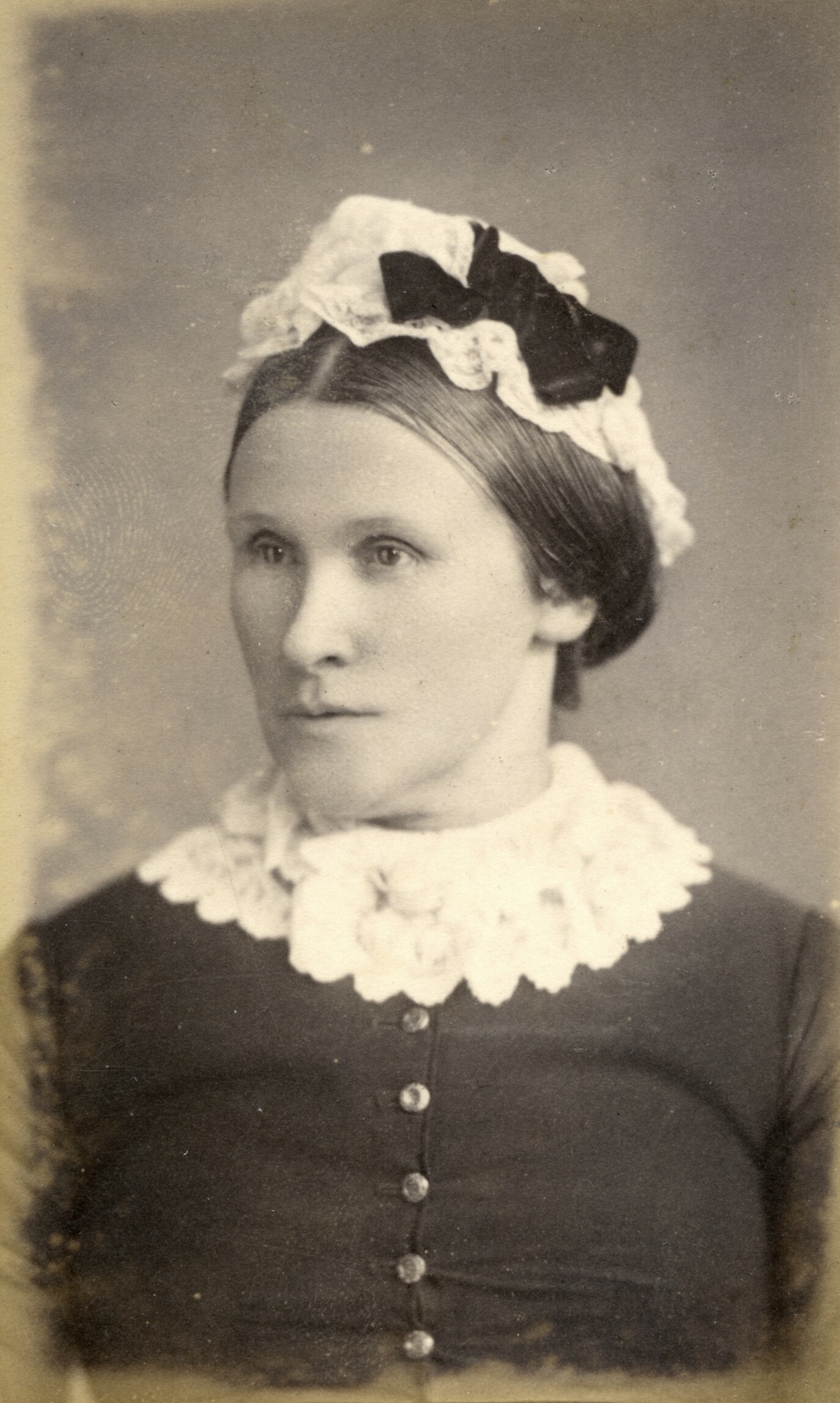Portable, collapsible and durable furniture became popular with military officers during the many European wars of the late eighteenth and early nineteenth centuries.
This style of desk, called a Davenport, is said to be named after a British military captain who commissioned a sturdy portable desk from English cabinet maker Gillows of Lancaster in the 1790s.
The trend for military style furniture caught on and many civilian homes soon featured very practical furniture.

This particular Davenport belonged to Martha King who arrived in Lyttelton with her children in 1850. As Martha’s husband had passed away some time before the family emigrated, she had to find a source of income. Martha ended up running what we would now recognise as a cafe in Lyttelton. It’s possible that Martha brought the desk with her when she travelled to New Zealand on board the Cressy. A compact desk would have been much easier to transport on a packed immigrant ship.
Photos of Martha’s grandchildren standing by the desk indicate that at one point it had a base board and that a few knobs are now missing but otherwise it is in pretty good condition.

If you want to know a bit more about Martha you can read her biography in the G R Macdonald Dictionary of Canterbury Biographies. As the Macdonald Dictionary is organised by the head of the household, who were usually men, it’s very rare for women to have their own biography. Martha only has an entry because as a widow she became the head of the household. Of the 22,000 indexed names only 64 are women.

Martha’s grandson Thomas has his own biography in the dictionary but her granddaughter Agnes does not. To find more information about Agnes you need to search for her father’s biography or her husband’s. This can be complicated if you don’t know who she married or who her father was.
To help make searching the Macdonald Dictionary easier, the Museum and the University of Canterbury’s Digital Humanities programme have developed a crowdsourcing project to tag and transcribe additional names mentioned in the biographies. Tagging these additional names makes them computer searchable. For example, if Agnes Caverhill's name was tagged when it's mentioned in her husband or father's biography, you could find information about her without having to already know the names of her male relatives.
We are looking for computer savvy volunteers to help us with this project. If this sounds like you then follow this link to the project page to find out more about what's involved. You’ll need to set up a free user account with Zooniverse and there is a tutorial with instructions on how to tag and transcribe names.
With your help, visitors will soon be able to search for women like Agnes Caverhill and very quickly discover who their fathers were, who they married and maybe even find a lovely photograph of them just by typing their name in the search bar.





